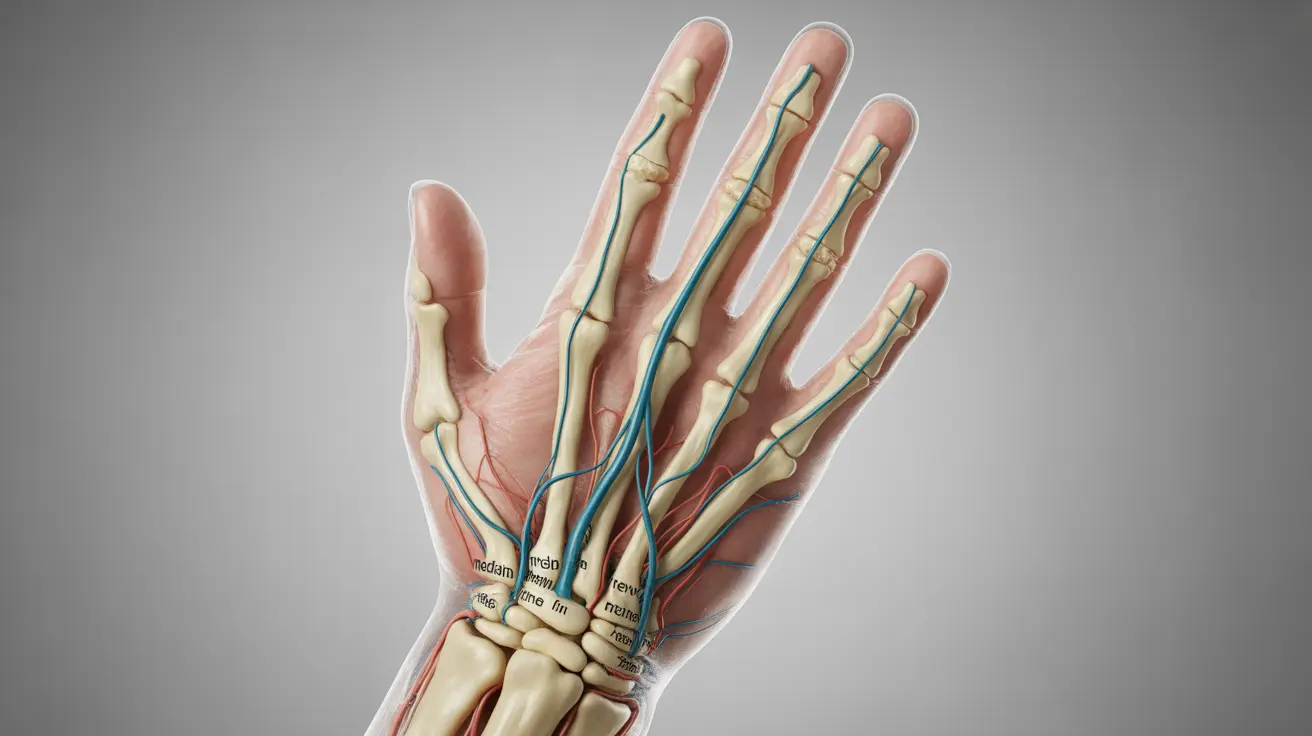Experiencing numbness in your thumb can be concerning and disruptive to daily activities. This sensation, which may feel like tingling, pins and needles, or complete loss of feeling, can stem from various underlying causes. Understanding the potential reasons and available treatments is crucial for managing this condition effectively.
Whether you're experiencing temporary or persistent thumb numbness, this comprehensive guide will help you understand its common causes, recognize warning signs, and know when to seek medical attention.
Common Causes of Thumb Numbness
Several conditions can lead to numbness in the thumb, ranging from minor compression issues to more serious medical conditions:
Nerve Compression Syndromes
The most frequent cause of thumb numbness is nerve compression, particularly:
- Carpal Tunnel Syndrome (CTS)
- Cervical radiculopathy
- Cubital tunnel syndrome
- Thoracic outlet syndrome
Medical Conditions
Various underlying health conditions may contribute to thumb numbness:
- Diabetes
- Multiple sclerosis
- Vitamin B12 deficiency
- Peripheral neuropathy
Identifying Carpal Tunnel Syndrome
Carpal tunnel syndrome is a leading cause of thumb numbness. Key indicators include:
- Numbness affecting the thumb, index, and middle fingers
- Symptoms worsening at night
- Pain or tingling that travels up the arm
- Weakness in grip strength
- Difficulty with fine motor tasks
Treatment Approaches
Conservative Management
Initial treatment options often include:
- Wrist splinting, especially at night
- Activity modification
- Ergonomic workplace adjustments
- Gentle stretching exercises
- Anti-inflammatory medications
Medical Interventions
When conservative treatments aren't sufficient, medical professionals may recommend:
- Corticosteroid injections
- Physical therapy
- Occupational therapy
- Surgery in severe cases
The Role of Stress and Anxiety
While stress and anxiety themselves don't directly cause thumb numbness, they can:
- Exacerbate existing symptoms
- Lead to tension and muscle tightness
- Cause hyperventilation, which may result in temporary numbness
- Increase awareness of physical sensations
When to Seek Medical Attention
Contact a healthcare provider if you experience:
- Persistent numbness lasting more than a few days
- Sudden onset of severe symptoms
- Numbness accompanied by weakness or pain
- Symptoms that interfere with daily activities
Frequently Asked Questions
What are the common causes of numbness in the thumb? Common causes include nerve compression syndromes (particularly carpal tunnel syndrome), cervical spine issues, diabetes, vitamin deficiencies, and certain neurological conditions.
How can I tell if my thumb numbness is due to carpal tunnel syndrome? Carpal tunnel syndrome typically causes numbness in the thumb, index, and middle fingers, with symptoms often worsening at night. You may also experience tingling, pain, and weakness in your hand.
What treatments are available for numbness in the thumb caused by nerve compression? Treatment options range from conservative approaches like splinting and activity modification to medical interventions including corticosteroid injections and, in severe cases, surgery.
Can stress or anxiety cause numbness in the thumb and how is it managed? While stress and anxiety don't directly cause thumb numbness, they can worsen symptoms and increase awareness of physical sensations. Management includes stress reduction techniques, regular exercise, and addressing underlying anxiety.
When should I see a doctor for persistent thumb numbness and what tests might be done? Seek medical attention if numbness persists for more than a few days, is severe, or accompanies other symptoms. Doctors may perform physical examinations, nerve conduction studies, EMG testing, or imaging studies to determine the cause.




